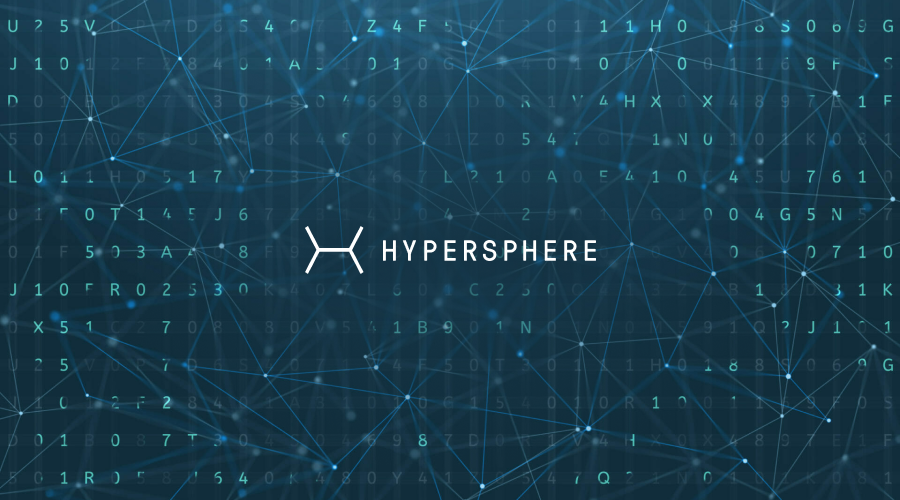
Enterprise Blockchain Adoption: Business Use Cases and Applications
Jul 09, 2021
Recently, we reviewed digital identity as a new way to manage your online data. In today's article, we'll focus on enterprise adoption as one of the blockchain trends to become landmarks in 2021.
Due to its permanent persistence in the spotlight, blockchain works its way towards mass adoption. In this expansion, innovative enterprises, undoubtedly, play one of the major roles. For a better understanding, what that role is, what implementation advantages of blockchain technology for enterprises are, what value it adds to business, and what opportunities it carries, let's take a look at the most successful technology adoptions underpinned by business use cases.
Tokenization
Tokenization is the process that allows moving digital assets across blockchain networks in the way cryptocurrency is transferred. For instance, Coke One North America sends tokenized invoices across multiple supply chain participants.
Also, tokenized assets make it easier and less costly to move financial items. For example, Quorum, a customized version of Ethereum, supports high-speed transactions between banks and insurance companies.
We can find another shining example of the successful application of enterprise blockchain adoption in the recently announced partnership Groupe Renault along with several organizations, including IBM. The collaboration resulted in creating a blockchain-based platform that traces car parts in real-time and verifies their compliance against industry standards.
At the same time, the tokenization of digital assets can be applied in different areas. For example, a Canadian nonprofit organization Canadian Blood Services, has tokenized blood donations. When donors make blood donations, a considerable volume of data is generated. The tokenized blood donations are made so Ernst & Young Canada can track data and provide an audit trail for blood products.
The above business cases aren't rare occurrences. In fact, they show the opposite — the trend of tokenization will continue to be adopted and leveraged by enterprises.
Supply Chains
The application usages of blockchain applications in trade finance, digital assets, and identity management provide practical value for enterprises in achieving their business needs.
It pertains equally to supply chains as another promising enterprise blockchain adoption.
An example is EMURGO’s Traceability Solution. In this use case, the solution is deployed in the coffee industry. The entire supply chain of the coffee is recorded and verified through the solution. Such an implementation ensures credibility to participants engaged in the coffee supply chain, starting from the producer and finishing with its end consumers.
According to the Forrester report, "almost all the initiatives set to go from pilot into production next year will run on enterprise blockchain platforms that utilize the cloud."
Another business use case is IBM. The company has seen substantial progress in financial services as well as in supply chain. IBM's Food Trust Network stands as a firm illustration of how retailers can trace food products back to their source by leveraging blockchain networks: More than 18 million transactions representing more than 17,000 products were completed using the Network.
Powered by blockchain technology, supply chains will certainly affect business effectiveness.
Decentralized Finance and Public Blockchains
As Decentralized Finance, or DeFi for short, continues to mature, cryptocurrency operations keep on offering a diverse scope of applications. In this fashion, employing technological advantages of the DeFi ecosystem can significantly improve both user behavior and user experience, acceptance of digital assets, and overall adoption of DeFi.
DeFi systems have significant advantages over legacy ones for a couple of reasons: they allow ease of access for unbanked persons, provide a broader range of financial services, and ensure continuous control over own funds.
In essence, decentralized finance is a monetary system built on public blockchains and peer-to-peer protocols. Unlike private (governed by a single entity), public blockchains are open-source networks.
In turn, public blockchains may offer a better choice for some enterprise users.
Many organizations are using public blockchains to achieve benefits that private networks cannot provide. Privacy, security, and zero-knowledge cryptography used in public blockchain networks are some of the advantages. These solutions ensure user's data is secured but transparent and accessible when needed.
HyperSphere Use Cases and Applications
HyperSphere is a decentralized cyber secure network. The HyperSphere employs a new communication protocol with the patented Secure Dynamic Network & Protocol (SDNP) technology.
As a global network and cloud-based computing platform, the HyperSphere supports a wide range of services and functions, creating economic value and enabling e-commerce.
Applications supported by the HyperSphere include:
Real-time communication. The dynamic routing capability of the HyperSphere allows it to support a wide range of electronic communication, including telephony, VoIP, text messaging, live video, conference calls, audio and video content streaming, email, and professional communication. Benefits include identity-trust-chain-based privacy, low latency, and cost-performance optimization capability.
Disaggregated data and cloud storage. With its network-native disaggregated data storage capability, the HyperSphere offers the perfect platform for supporting big data projects and protecting personal information privacy in files containing credit history, financial information, medical records, and more.
Secure cloud-connected devices. The benefits of the HyperSphere in cloud-connected device operation include capturing and recording sensor data onto a blockchain to ensure data integrity. HyperSphere can support research projects, facilitate funding for non-profit initiatives, launch various projects, and be considered a solution of transparent donations for charities and a security provider for autonomous cars and connected infrastructure.
E-Services. For financially related products and services, the HyperSphere ensures transactional integrity through SDNP-based hypersecure communication and network native CA-certificate-based identity-trust-chains. Several provisions of the HyperSphere are precious in offering financial services while protecting account privacy.
Summary
The above examples and business use cases show how more and more enterprises are implementing and deploying the advantages of blockchain technology.
With its information security and storage capabilities, blockchain technology can offer enterprises a more cost-effective way to manage data. And as demand for digital solutions that can maximize efficiency, provide transparency and ensure data protection increases, enterprise blockchain adoption will rise as well.
